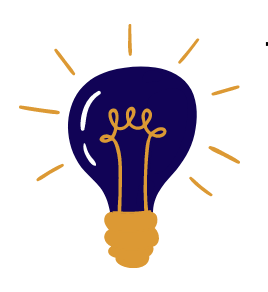This December, COPE is taking the opportunity to launch a crowdfunding campaign.

What do donations to COPE go towards?
COPE’s overall mission is to safeguard the social, political and judicial inclusion of children with an imprisoned parent, while fostering the pursuit and exchange of knowledge which enhances good practices, and contributes to a better understanding of the psychological, emotional and social development of these children.
How does COPE do this?
COPE carries out a range of activities to meet this end, all within three central pillars:
- Advocacy: efforts go into putting children with imprisoned parents at the heart of policy-making.
- Capacity Building: COPE co-develops tools and multisectoral support schemes for children.
- Network Development: COPE enhances the richness and diversity of the network, bolstering connections and promoting partnerships across Europe.
Below are three examples of COPE’s work from the past year that donations make possible:
1. Training session in Estonia
On 16 June in Tallinn, COPE carried out a training session with 65 participants of the Estonian prison and probation service to improve practice supporting children with a parent in prison. The event marked a groundbreaking moment in the Estonian context and led to a similar training session held in Lithuania later this year. One participant of COPE’s training session reported that the event “expanded [their] views on the topic of how important [the] relationship between kids and prisoners is”, whilst another noted that they learned “how correction facility officers can reduce stress during convicts’ experience in prisons and how they can have a positive impact on relationships with children.”
Donations to COPE allow training sessions to continue to take place across European prison services, as well as with further stakeholder groups including police, judges, prosecutors and teachers.

2. Roundtable for Judges and Magistrates in Poland
On 22 September, COPE organised a Roundtable for Judges and Magistrates in Krakow. The Roundtable provided an opportunity for Judiciary, Prosecutors and COPE members to come together and exchange on the promotion of the best interests of children during a parent’s criminal sentencing. COPE takes a holistic, cross-spectrum child rights approach to working with judges and magistrates to ensure that children are not slipping through the cracks at any stage – when issuing arrest warrants; when deciding on pre-trial/during trial; when reviewing conditions for ongoing child-parent contact, when sentencing, and during a parent’s release from prison – temporary or permanent and any ongoing restrictions.
Roundtable discussions considered how to include information on family situations in sentencing decisions, and how to hear children and consider their best interests before decisions are taken. Donations allow COPE to continue to facilitate an exchange of good practice and ideas in the judicial realm and beyond, through the organisation of similar events.

3. Platform for children’s voices
COPE provides a platform for children to articulate their needs and assert their rights, and then works to ensure their words are acted upon. To that end, COPE members shared with children a selection of the 56 articles forming the Council of Europe Recommendation CM/Rec(2018)5, the landmark instrument that promotes the rights and needs of children when a parent comes into conflict with the law. Children were then invited to choose one article that is most meaningful to them. They were asked to illustrate the article and to write a few words explaining it. The responses have been gathered in this document, ‘What I think, in images and words’, now available online.
‘What I think in images and words’ has been translated into Polish, but this document – and many more of COPE’s resources – need to be translated into multiple languages in order to further achieve widespread, pan-European dissemination and impact.
Donations help increase COPE’s capacity to produce, translate and share these publications.


